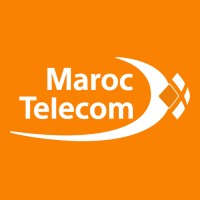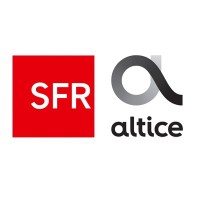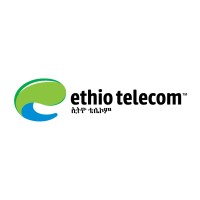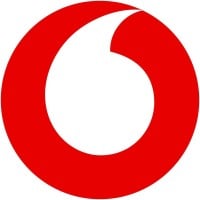
Vivo (Telefônica Brasil) Company Cyber Security Posture
vivo.com.brVivo (Telefônica Brasil) is part of the Telefónica Group and with more than 94 million customers, of which 75 million mobile and 19 million fixed, we are the largest telecommunications company in Brazil, with nationwide presence and a complete, convergent portfolio of products, combining fixed, mobile and digital services. Our purpose is “Digitalize to Bring Closer”, helping to build a digital nation and transforming the life of our customers. More and more, we connect people and things with Fiber, 4G and 4.5G and cover more cities with the network quality that only Vivo has. Today, we cover around 90% of the population with 4G and are accelerating the launch of cities with 4.5G, using carrier aggregation technology. In the fixed operation, we ended 2019 with 21 million homes-passed (HPs) with fiber optic technology, of which 11 million HPs with FTTH (fiber to the home). In addition, all cities with FTTH technology also offer TV over fiber (IPTV), aiming to offer the best speed and experience to our consumers. At Vivo, we also do more than just telecommunications. Within the Group, we have the Telefônica Vivo Foundation, that is committed to making education a priority, developing projects that are based on human potential and use technology as an instrument in favor of inclusion and digital culture.
V(B Company Details
vivo-telefonicabr
38408 employees
1356478.0
517
Telecommunications
vivo.com.br
Scan still pending
VIV_1616504
In-progress
Between 900 and 1000
This score is AI-generated and less favored by cyber insurers, who prefer the TPRM score.
 V(B Global Score
V(B Global Score.png)

Vivo (Telefônica Brasil) Company Scoring based on AI Models
| Model Name | Date | Description | Current Score Difference | Score |
|---|---|---|---|---|
| AVERAGE-Industry | 03-12-2025 | This score represents the average cybersecurity rating of companies already scanned within the same industry. It provides a benchmark to compare an individual company's security posture against its industry peers. | N/A | Between 900 and 1000 |
Vivo (Telefônica Brasil) Company Cyber Security News & History
| Entity | Type | Severity | Impact | Seen | Url ID | Details | View |
|---|---|---|---|---|---|---|---|
| Telefónica | Ransomware | 100 | 7/2025 | TEL732070725 | Link | ||
Rankiteo Explanation : Attack threatening the organization’s existenceDescription: A cybercriminal known as Rey, part of the Hellcat ransomware operation, claims to have stolen 106GB of sensitive data from Telefónica in May 2025. The stolen data includes internal communications, purchase orders, logs, customer records, and various employee data. Rey has released a 2.6GB sample and is threatening to release the full batch unless a payment is made. Telefónica has downplayed the incident, stating that the data is old and there was no new breach. | |||||||
Vivo (Telefônica Brasil) Company Subsidiaries

Vivo (Telefônica Brasil) is part of the Telefónica Group and with more than 94 million customers, of which 75 million mobile and 19 million fixed, we are the largest telecommunications company in Brazil, with nationwide presence and a complete, convergent portfolio of products, combining fixed, mobile and digital services. Our purpose is “Digitalize to Bring Closer”, helping to build a digital nation and transforming the life of our customers. More and more, we connect people and things with Fiber, 4G and 4.5G and cover more cities with the network quality that only Vivo has. Today, we cover around 90% of the population with 4G and are accelerating the launch of cities with 4.5G, using carrier aggregation technology. In the fixed operation, we ended 2019 with 21 million homes-passed (HPs) with fiber optic technology, of which 11 million HPs with FTTH (fiber to the home). In addition, all cities with FTTH technology also offer TV over fiber (IPTV), aiming to offer the best speed and experience to our consumers. At Vivo, we also do more than just telecommunications. Within the Group, we have the Telefônica Vivo Foundation, that is committed to making education a priority, developing projects that are based on human potential and use technology as an instrument in favor of inclusion and digital culture.
Access Data Using Our API

Get company history
.png)
V(B Cyber Security News
Telefonica Brasil: A Solid Strategy To Hold And Grow
Telefônica Brasil dominates Brazil's telecom market with rapid 5G expansion, strong financial growth, and an expanding fintech ecosystem.
Brazil’s Vivo eyes more B2B M&A after closing out IPNET buy
Founded in 2002 and based in Brazil, IPNET is primarily focused on providing Google Cloud's analytics, compute, and storage services to ...
Telefónica Tech incorporates Alejandro Ramos as 'country manager' of Brazil
Telefónica Tech has hired Alejandro Ramos, a renowned cybersecurity expert who was part of Telefónica between 2016 and April 2023, to take on ...
Telefonica Brasil’s Vivo Ventures Invests in Agrolend
Telefonica Brasil (VIV) has released an update. Telefonica Brasil's Vivo Ventures has made its sixth investment by acquiring a minority ...
Telefonica Brasil establishes IoT and big data firm
Telefônica Brasil (Vivo), a Brazilian telecommunications group and subsidiary of Spanish Telefónica, approved the transfer of the company's ...
Vivo reports 18% higher net profit in Q1 to BRL 1.1 billion
Brazil's Vivo (Telefonica Brasil) reported a net profit of BRL 1.1 billion in Q1 2025, marking an 18.1 percent increase compared to the same period last year.
Telefónica bulks up cybersecurity unit with Brazilian assets
Telefónica continued to rejig its cybersecurity assets as part of ongoing restructuring efforts at the Group, aimed at allowing it to focus ...
Vivo now owns 75% of FiBrasil after purchasing CDPQ's stake
None
Business Services
Telefonica supports SMEs along their digital transformation journey, so that they face upcoming changes as a growth opportunity, in a coordinated and secure ...

V(B Similar Companies

Maroc Telecom
A significant force in the economic and social development in 10 African countries As a global operator in Africa, a leader in Morocco and other countries, Maroc Telecom is actively involved in the dynamism of the telecommunications sector in 10 African countries where it operates: Morocco, Benin, B

SFR
SFR is the number one alternative telecoms operator in France. SFR is also an operator providing a comprehensive range of services meeting the expectations of private and business customers alike, offering them the best of the digital world. At year-end 2011, the total number of mobile customers was

Optus
As one of the largest telecommunications companies in Australia, Optus provides mobile, telephony, internet, satellite, entertainment and business network services to more than 10 million customers each day. Our mobile network reaches 98.5 per cent of the Australian population and we are committed

ethio telecom
We are Africa’s pioneering telecom company with more than 130 years of immense experience. Today, here we are standing bold and BIG yet for another golden milestone leading Ethiopia and Ethiopians towards a bright future. We are always on the front line to streamline the overall effort of our peop

Vodafone
At Vodafone, we believe that connectivity is a force for good. If we use it for the things that really matter, it can improve people's lives and the world around us. Through our technology we empower people, connecting everyone regardless of who they are or where they live, we protect the planet a

Jazz
Pakistan’s number one digital operator and the largest internet and broadband service provider with over 70 million subscribers nationwide. With a legacy of more than 27 years, Jazz maintains market leadership through cutting-edge, integrated technology, the strongest brands and the largest portfoli

Frequently Asked Questions
Explore insights on cybersecurity incidents, risk posture, and Rankiteo's assessments.
V(B CyberSecurity History Information
How many cyber incidents has V(B faced?
Total Incidents: According to Rankiteo, V(B has faced 1 incident in the past.
What types of cybersecurity incidents have occurred at V(B?
Incident Types: The types of cybersecurity incidents that have occurred incident Ransomware.
What was the total financial impact of these incidents on V(B?
Total Financial Loss: The total financial loss from these incidents is estimated to be $0.
How does V(B detect and respond to cybersecurity incidents?
Detection and Response: The company detects and responds to cybersecurity incidents through incident response plan activated with null and third party assistance with null and law enforcement notified with null and containment measures with null and remediation measures with null and recovery measures with null and communication strategy with null and adaptive behavioral waf with null and on demand scrubbing services with null and network segmentation with null and enhanced monitoring with null.
Incident Details
Can you provide details on each incident?

Incident : Data Breach
Title: Telefónica Data Breach Incident
Description: A threat actor claims to have stolen 106GB of sensitive files from Telefónica. The company asserts the files were old and stolen from a previous incident. A sample was shared with the media, with the full batch soon to follow.
Date Detected: null
Date Publicly Disclosed: null
Date Resolved: null
Type: Data Breach
Attack Vector: Internal Jira development and ticketing server
Vulnerability Exploited: null
Threat Actor: Hellcat ransomware operation, alias Rey
Motivation: Ransom
What are the most common types of attacks the company has faced?
Common Attack Types: The most common types of attacks the company has faced is Ransomware.
How does the company identify the attack vectors used in incidents?
Identification of Attack Vectors: The company identifies the attack vectors used in incidents through Internal Jira development and ticketing server.
Impact of the Incidents
What was the impact of each incident?

Incident : Data Breach TEL732070725
Financial Loss: null
Data Compromised: 106GB of sensitive files, including internal communications, purchase orders, logs, customer records, and employee data
Systems Affected: Internal Jira development and ticketing server
Downtime: null
Operational Impact: null
Conversion Rate Impact: null
Revenue Loss: null
Customer Complaints: null
Brand Reputation Impact: null
Legal Liabilities: null
Identity Theft Risk: null
Payment Information Risk: null
What is the average financial loss per incident?
Average Financial Loss: The average financial loss per incident is $0.00.
What types of data are most commonly compromised in incidents?
Commonly Compromised Data Types: The types of data most commonly compromised in incidents are Internal communications, purchase orders, logs, customer records and and employee data.
Which entities were affected by each incident?

Incident : Data Breach TEL732070725
Entity Type: Telecommunications Company
Industry: Telecommunications
Location: Spain
Size: null
Customers Affected: null
Response to the Incidents
What measures were taken in response to each incident?

Incident : Data Breach TEL732070725
Incident Response Plan Activated: null
Third Party Assistance: null
Law Enforcement Notified: null
Containment Measures: null
Remediation Measures: null
Recovery Measures: null
Communication Strategy: null
Adaptive Behavioral WAF: null
On-Demand Scrubbing Services: null
Network Segmentation: null
Enhanced Monitoring: null
What is the company's incident response plan?
Incident Response Plan: The company's incident response plan is described as null.
How does the company involve third-party assistance in incident response?
Third-Party Assistance: The company involves third-party assistance in incident response through null.
Data Breach Information
What type of data was compromised in each breach?

Incident : Data Breach TEL732070725
Type of Data Compromised: Internal communications, purchase orders, logs, customer records, and employee data
Number of Records Exposed: 380,000 files
Sensitivity of Data: Sensitive
Data Exfiltration: 106GB
Data Encryption: null
File Types Exposed: Invoices, email addresses, internal communications, purchase orders, logs, customer records, and employee data
Personally Identifiable Information: Email addresses, invoices for business partners or customers
What measures does the company take to prevent data exfiltration?
Prevention of Data Exfiltration: The company takes the following measures to prevent data exfiltration: null.
How does the company handle incidents involving personally identifiable information (PII)?
Handling of PII Incidents: The company handles incidents involving personally identifiable information (PII) through was null.
Ransomware Information
Was ransomware involved in any of the incidents?

Incident : Data Breach TEL732070725
Ransom Demanded: null
Ransom Paid: null
Ransomware Strain: Hellcat
Data Encryption: null
Data Exfiltration: 106GB
How does the company recover data encrypted by ransomware?
Data Recovery from Ransomware: The company recovers data encrypted by ransomware through null.
Regulatory Compliance
Were there any regulatory violations and fines imposed for each incident?

Incident : Data Breach TEL732070725
Regulations Violated: null
Fines Imposed: null
Legal Actions: null
Regulatory Notifications: null
How does the company ensure compliance with regulatory requirements?
Ensuring Regulatory Compliance: The company ensures compliance with regulatory requirements through null.
Lessons Learned and Recommendations
What lessons were learned from each incident?

Incident : Data Breach TEL732070725
Lessons Learned: null
What recommendations were made to prevent future incidents?

Incident : Data Breach TEL732070725
Recommendations: null
What are the key lessons learned from past incidents?
Key Lessons Learned: The key lessons learned from past incidents are null.
What recommendations has the company implemented to improve cybersecurity?
Implemented Recommendations: The company has implemented the following recommendations to improve cybersecurity: null.
References
Where can I find more information about each incident?
Where can stakeholders find additional resources on cybersecurity best practices?
Additional Resources: Stakeholders can find additional resources on cybersecurity best practices at and Source: BleepingComputerUrl: nullDate Accessed: null.
Investigation Status
What is the current status of the investigation for each incident?

Incident : Data Breach TEL732070725
Investigation Status: null
How does the company communicate the status of incident investigations to stakeholders?
Communication of Investigation Status: The company communicates the status of incident investigations to stakeholders through was null.
Stakeholder and Customer Advisories
Were there any advisories issued to stakeholders or customers for each incident?
What advisories does the company provide to stakeholders and customers following an incident?
Advisories Provided: The company provides the following advisories to stakeholders and customers following an incident: were null and null.
Initial Access Broker
How did the initial access broker gain entry for each incident?

Incident : Data Breach TEL732070725
Entry Point: Internal Jira development and ticketing server
Reconnaissance Period: null
Backdoors Established: null
High Value Targets: null
Data Sold on Dark Web: null
Post-Incident Analysis
What were the root causes and corrective actions taken for each incident?
What is the company's process for conducting post-incident analysis?
Post-Incident Analysis Process: The company's process for conducting post-incident analysis is described as null, null.
What corrective actions has the company taken based on post-incident analysis?
Corrective Actions Taken: The company has taken the following corrective actions based on post-incident analysis: null.
Additional Questions
General Information
Has the company ever paid ransoms?
Ransom Payment History: The company has Paid ransoms in the past.
What was the amount of the last ransom demanded?
Last Ransom Demanded: The amount of the last ransom demanded was null.
Who was the attacking group in the last incident?
Last Attacking Group: The attacking group in the last incident were an Hellcat ransomware operation and alias Rey.
Incident Details
What was the most recent incident detected?
Most Recent Incident Detected: The most recent incident detected was on null.
What was the most recent incident publicly disclosed?
Most Recent Incident Publicly Disclosed: The most recent incident publicly disclosed was on null.
What was the most recent incident resolved?
Most Recent Incident Resolved: The most recent incident resolved was on null.
Impact of the Incidents
What was the highest financial loss from an incident?
Highest Financial Loss: The highest financial loss from an incident was null.
What was the most significant data compromised in an incident?
Most Significant Data Compromised: The most significant data compromised in an incident were 106GB of sensitive files, including internal communications, purchase orders, logs, customer records and and employee data.
What was the most significant system affected in an incident?
Most Significant System Affected: The most significant system affected in an incident was Internal Jira development and ticketing server.
Response to the Incidents
What third-party assistance was involved in the most recent incident?
Third-Party Assistance in Most Recent Incident: The third-party assistance involved in the most recent incident was null.
What containment measures were taken in the most recent incident?
Containment Measures in Most Recent Incident: The containment measures taken in the most recent incident was null.
Data Breach Information
What was the most sensitive data compromised in a breach?
Most Sensitive Data Compromised: The most sensitive data compromised in a breach were 106GB of sensitive files, including internal communications, purchase orders, logs, customer records and and employee data.
What was the number of records exposed in the most significant breach?
Number of Records Exposed in Most Significant Breach: The number of records exposed in the most significant breach was 380.0K.
Ransomware Information
What was the highest ransom demanded in a ransomware incident?
Highest Ransom Demanded: The highest ransom demanded in a ransomware incident was null.
What was the highest ransom paid in a ransomware incident?
Highest Ransom Paid: The highest ransom paid in a ransomware incident was null.
Regulatory Compliance
What was the highest fine imposed for a regulatory violation?
Highest Fine Imposed: The highest fine imposed for a regulatory violation was null.
What was the most significant legal action taken for a regulatory violation?
Most Significant Legal Action: The most significant legal action taken for a regulatory violation was null.
Lessons Learned and Recommendations
What was the most significant lesson learned from past incidents?
Most Significant Lesson Learned: The most significant lesson learned from past incidents was null.
What was the most significant recommendation implemented to improve cybersecurity?
Most Significant Recommendation Implemented: The most significant recommendation implemented to improve cybersecurity was null.
References
What is the most recent source of information about an incident?
Most Recent Source: The most recent source of information about an incident is BleepingComputer.
What is the most recent URL for additional resources on cybersecurity best practices?
Most Recent URL for Additional Resources: The most recent URL for additional resources on cybersecurity best practices is null .
Investigation Status
What is the current status of the most recent investigation?
Current Status of Most Recent Investigation: The current status of the most recent investigation is null.
Stakeholder and Customer Advisories
What was the most recent stakeholder advisory issued?
Most Recent Stakeholder Advisory: The most recent stakeholder advisory issued was null.
What was the most recent customer advisory issued?
Most Recent Customer Advisory: The most recent customer advisory issued was was an null.
Initial Access Broker
What was the most recent entry point used by an initial access broker?
Most Recent Entry Point: The most recent entry point used by an initial access broker was an Internal Jira development and ticketing server.
What was the most recent reconnaissance period for an incident?
Most Recent Reconnaissance Period: The most recent reconnaissance period for an incident was null.
What Do We Measure?
















Every week, Rankiteo analyzes billions of signals to give organizations a sharper, faster view of emerging risks. With deeper, more actionable intelligence at their fingertips, security teams can outpace threat actors, respond instantly to Zero-Day attacks, and dramatically shrink their risk exposure window.
These are some of the factors we use to calculate the overall score:
Identify exposed access points, detect misconfigured SSL certificates, and uncover vulnerabilities across the network infrastructure.
Gain visibility into the software components used within an organization to detect vulnerabilities, manage risk, and ensure supply chain security.
Monitor and manage all IT assets and their configurations to ensure accurate, real-time visibility across the company's technology environment.
Leverage real-time insights on active threats, malware campaigns, and emerging vulnerabilities to proactively defend against evolving cyberattacks.




